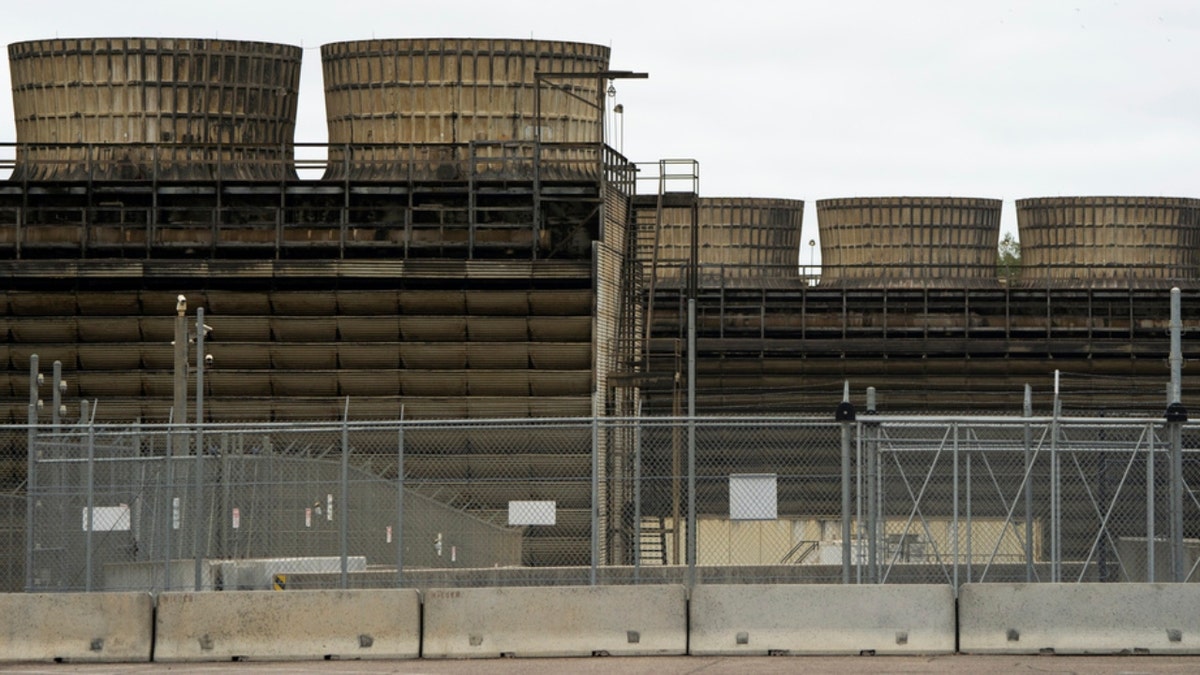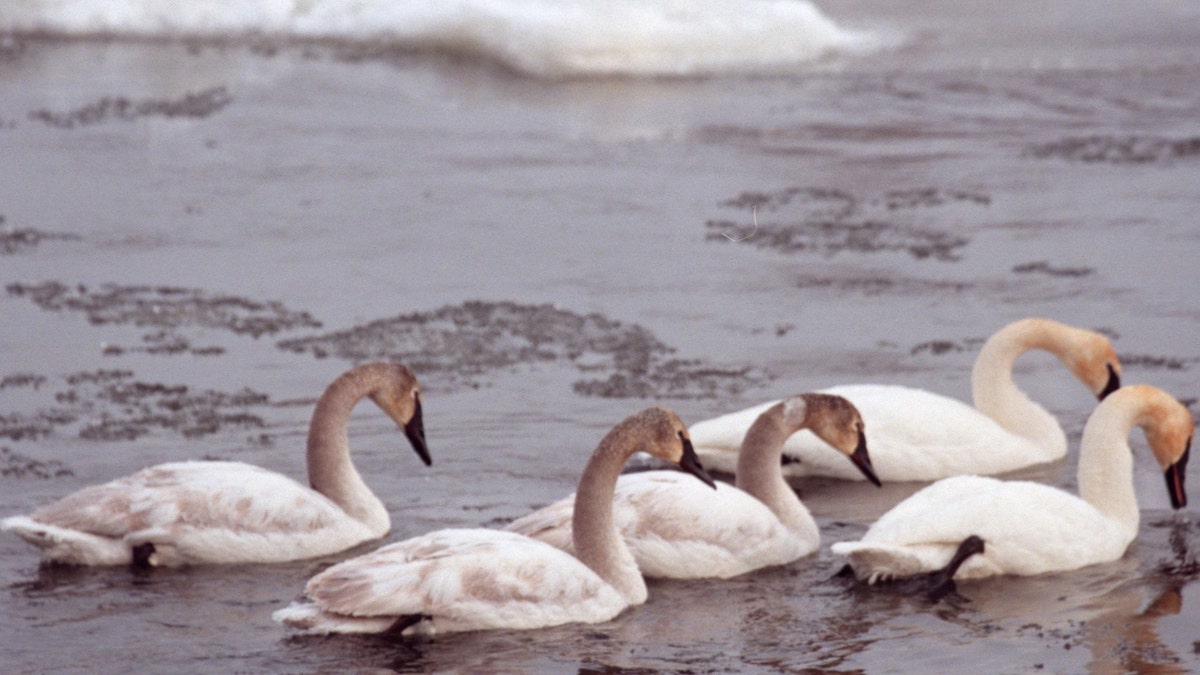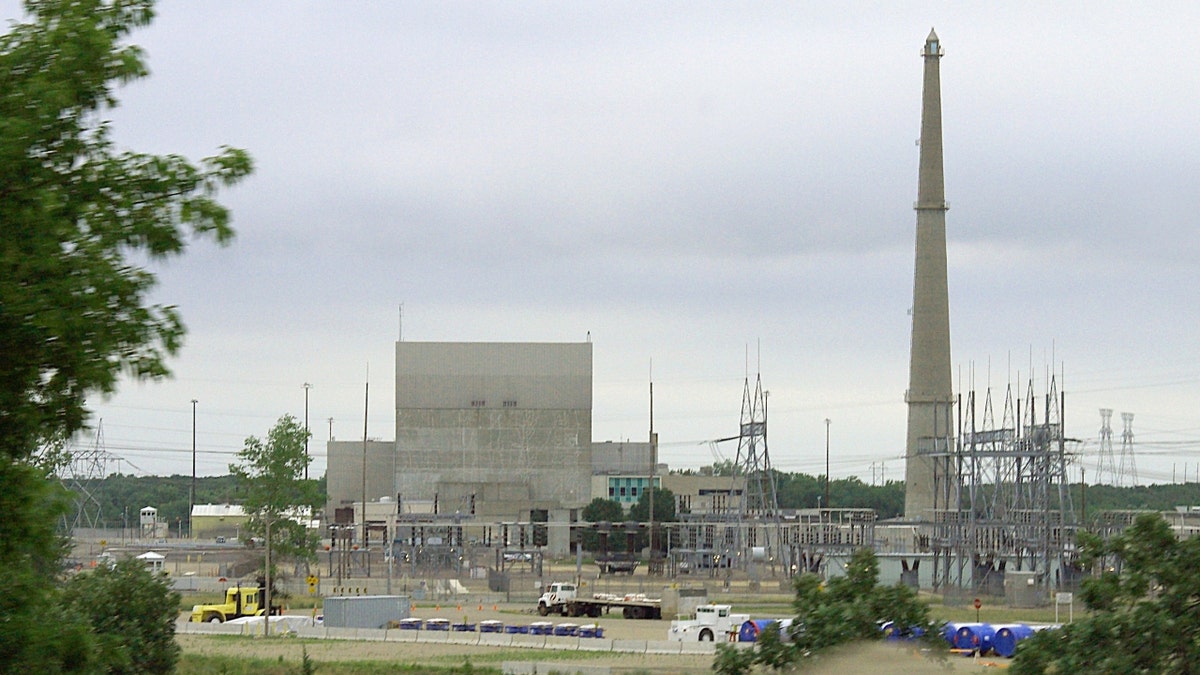Ohio residents grapple with toxic train derailment
Drone photographer Zachary Riter shares scenes from East Palestine, Ohio.
Minnesota regulators said Thursday that they are monitoring cleanup efforts by Xcel Energy following a leak of 400,000 gallons of radioactive water from the utility's Monticello nuclear power plant.
The Minnesota Pollution Control Agency said in a news release that the leak has not left the facility site or contaminated drinking water sources.
Xcel said in its own release that the leak poses no threat to the local community or the environment, "as confirmed by Nuclear Regulatory Commission guidelines."
The leak was first detected late last year and Xcel reported it to the Minnesota Duty Officer and the Nuclear Regulatory Commission in late November.

Cooling towers release heat generated by boiling water reactors at Xcel Energy's Nuclear Generating Plant on Oct. 2, 2019, in Monticello, Minnesota. ((Evan Frost/Minnesota Public Radio via AP, File))
The MPCA said – in coordination with the Minnesota Department of Health and the Minnesota Department of Natural Resources – that the leak had been stopped and had not reached the Mississippi River.
"There is no evidence at this time to indicate a risk to any drinking water wells in the vicinity of the plant," it said.
Xcel said that those conclusions came following ongoing monitoring from more than two dozen on-site monitoring wells.
"We knew there was a presence of tritium in one monitoring well, however Xcel had not yet identified the source of the leak and its location," MPCA spokesman Michael Rafferty said, according to The Associated Press.
"Now that we have all the information about where the leak occurred, how much was released into groundwater and that contaminated groundwater had moved beyond the original location, we are sharing this information," he said.

Monticello, MN., Thursday, 1/7/2000. A group of trumpeter swans swam past ice chunks forming in the Mississippi River three miles south of the Monticello power plant. ((Photo By BRUCE BISPING/Star Tribune via Getty Images))
DUST STORM, HEAVY POLLUTION IN CHINA'S CAPITAL LEADS TO 'HAZARDOUS' AIR QUALITY
While Xcel reported the leak of the water containing tritium to state and federal authorities in 2022, the spill had not been made public before Thursday. State officials said they had waited to get more information before going public with the news.
"We understand the importance of quickly informing the communities we serve if a situation poses an immediate threat to health and safety. In this case, there was no such threat," Xcel told the news agency.
The leak of the water containing tritium came from a water pipe running between two buildings at the facility.

This July 24, 2008, photo shows the Monticello nuclear power plant in Monticello, Minn. The site, which began operating in 1971, has a single nuclear reactor. ((Photo credit should read KAREN BLEIER/AFP via Getty Images))
Contaminated groundwater is being pumped through extraction wells. The water is being stored – and some is being reused on site which contains levels of tritium that are below the regulatory commission's safety thresholds. Xcel plans to install a permanent solution in the spring of this year. It is considering building above-ground storage tanks to store contaminated water.
To date, it has recovered about 25% of the tritium released and will continue recovery over the course of the next year.
It is not yet clear what the cause of the leak was, but the company said that it would examine one pipe that did leak in a laboratory to better understand why it happened.
Tritium is a naturally occurring radioactive form of hydrogen that is produced in the atmosphere and is naturally present in the environment. It is commonly created in the operation of nuclear power plants and emits low levels of radiation. The regulatory commission noted that everyone is exposed to small amounts of tritium every day because it occurs in the environment and the foods we eat.
The Associated Press contributed to this report.












































